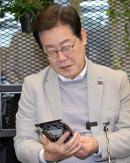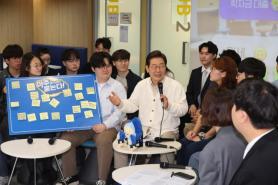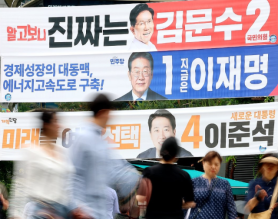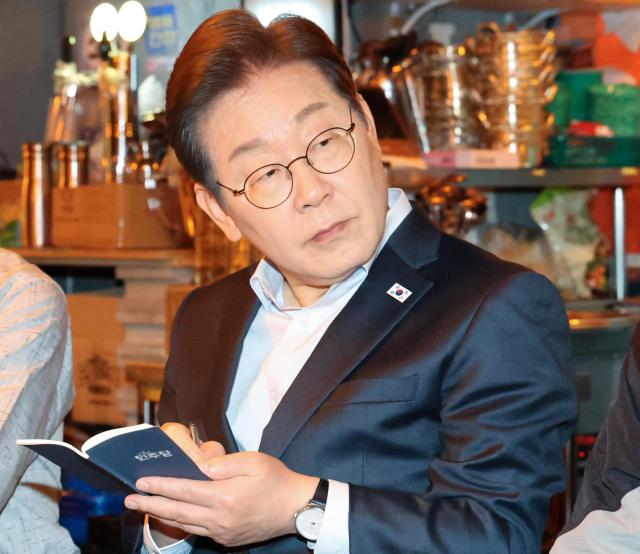
SEOUL, May 27 (AJP) - South Korea's leading presidential candidate Lee Jae-myung of the Democratic Party has vowed to overhaul the country’s labor system and market practices in a bold attempt to forge what he calls a “basic society."
Speaking days after a fatal industrial accident at an SPC bakery plant, Lee underscored the urgency of reform.
“We must improve the shameful reality of a ‘labor-backward' country, where workplaces become sites of death, not life,” he said during a campaign stop on May 20. “As befits the world’s 10th-largest economy, we must correct the contradictions in our labor system.”
Lee, a longtime advocate for labor rights, has made revitalizing the labor market a centerpiece of his campaign ahead of the June 3 presidential election.
His platform includes backing the controversial Yellow Envelope Act, a legislative effort that seeks to expand the scope of legal labor disputes and limit employers’ ability to sue workers and unions for damages incurred during strikes.
The measure, repeatedly vetoed by former President Yoon Suk Yeol, returned to the spotlight during the first televised debate of the campaign.
The ruling People Power Party’s candidate, Kim Moon-soo, criticized the act as unconstitutional, while Lee defended it, citing support from both South Korea’s Constitutional Court and the International Labour Organization.
The origins of the bill trace back to a turbulent labor dispute at SsangYong Motor in 2009, where a 77-day strike ended in violence and long-term trauma for many of the workers involved. A Supreme Court ruling in 2014 deemed the strike illegal and imposed 4.7 billion won in damages on the workers. In response, civic groups launched a donation campaign, symbolized by yellow envelopes — a gesture that later gave the act its name.
If passed, the legislation would extend protections to indirectly employed workers and shield unions from excessive financial penalties.
But business leaders warn it could embolden strike activity and deter foreign investment. A 2024 survey by the Federation of Korean Industries found that 59 percent of foreign firms operating in South Korea were skeptical of the proposal, fearing a 20 percent uptick in strike activity and a potential 15.4 percent drop in foreign direct investment.
“The act could foster a culture of resolving disputes solely through strikes, rather than dialogue and cooperation,” said Lee Sang-ho, vice president of the FKI’s economic research department.
Others have criticized the bill’s legal underpinnings.
Cho Dong-geun, a professor emeritus at Myongji University, said it defies civil law norms. “The act obscures the distinction between legal and illegal strikes,” he said, warning that it “disrupts the fine line that defines the relationship between employers and employees.”
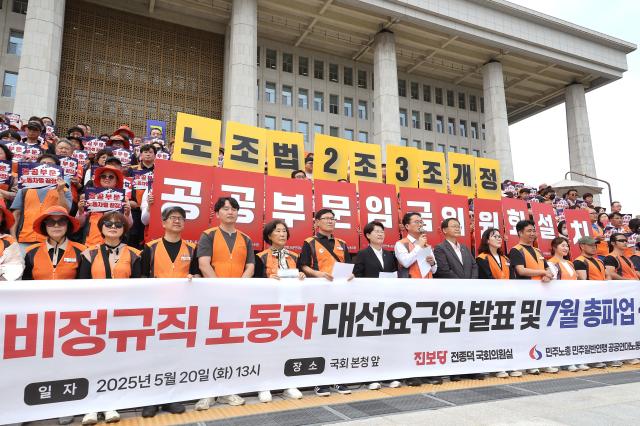
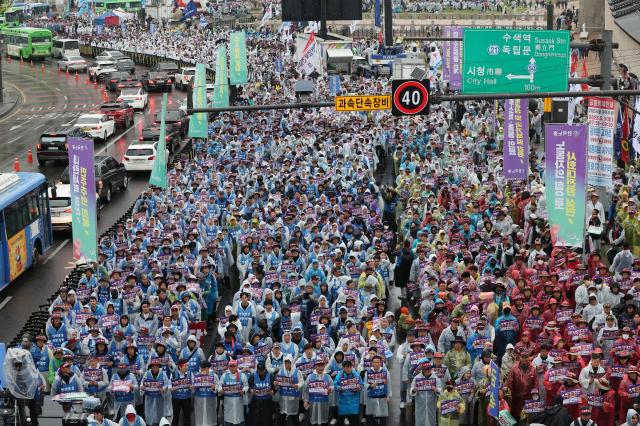
Labor unions have welcomed Lee's idea, with both the Korean Confederation of Trade Unions and the Federation of Korean Trade Unions voicing support. Pilot programs at companies like SK Telecom and POSCO have shown early signs of feasibility, allowing employees to take alternating Fridays off.
Business groups, however, remain wary. On May 8, leaders of South Korea’s five major business lobby groups, including SK Group Chairman Chey Tae-won, met with Lee to voice concerns that the reduced workweek could hamper competitiveness and widen disparities between large corporations and small firms.
According to a recent survey by the Korea Federation of SMEs, 42.4 percent of small business operators already struggle under the current 52-hour workweek.
Lee’s labor agenda also includes enhancing workplace safety. He has pledged greater investment in healthcare and protections for workers exposed to hazardous environments.
Parallel to his labor reforms, Lee has laid out an ambitious economic plan to boost fairness and transparency in South Korea’s markets. He has promised to crack down on stock price manipulation and pledged to implement a “one-strike-out” policy targeting malicious traders.
Central to his economic vision is South Korea’s long-anticipated inclusion in the Morgan Stanley Capital International (MSCI) World Index — a designation that could attract significant foreign investment and enhance market stability.
The country has pursued MSCI “developed market” status since 2008, and recent signs suggest momentum is building. In late 2024, the Financial Services Commission expressed optimism, citing progress in transparency and market infrastructure.
Lee has also promised to address the so-called “Korea Discount,” a term used to describe the persistent undervaluation of South Korean stocks.
In a social media post on May 25, he declared his intention to push the benchmark KOSPI index to 5,000 points — a level that would signal unprecedented investor confidence. “The revitalization of our stock market is the fastest and most accessible path to healthy asset growth for the people,” he wrote.
As the June 3 election nears, Lee’s sweeping proposals — from labor rights to market reform — have sparked vigorous debate over whether South Korea can balance ambitious social change with economic competitiveness.
But for Lee, the answer is clear. “We must boldly shift our policies to achieve a sustainable work-life balance,” he said. “Only then can our economy and our people truly thrive.”
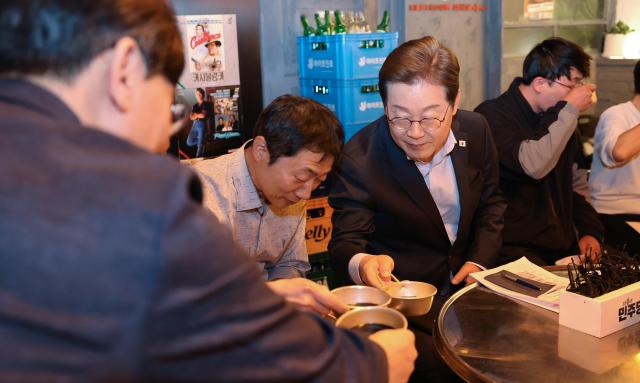
Copyright ⓒ Aju Press All rights reserved.


